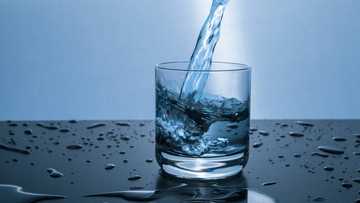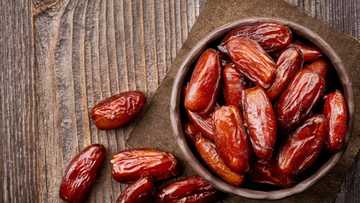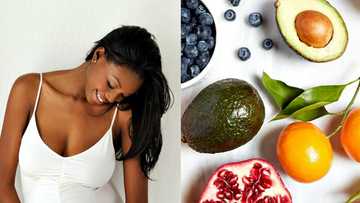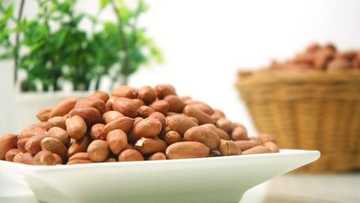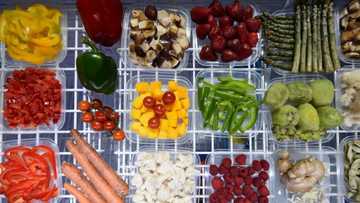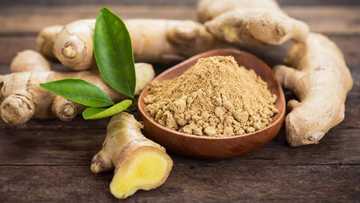What is balance diet and why is it important for your health?
A balanced diet means eating proteins, healthy fats, and carbohydrates in the right proportions to support your body and mind. Skipping these foods can cause fatigue, weakened immunity, and long-term conditions like heart disease. Dietitian Michelle Umeadi shares simple tips on common diet mistakes, wrong beliefs, and easy daily steps for healthy eating.
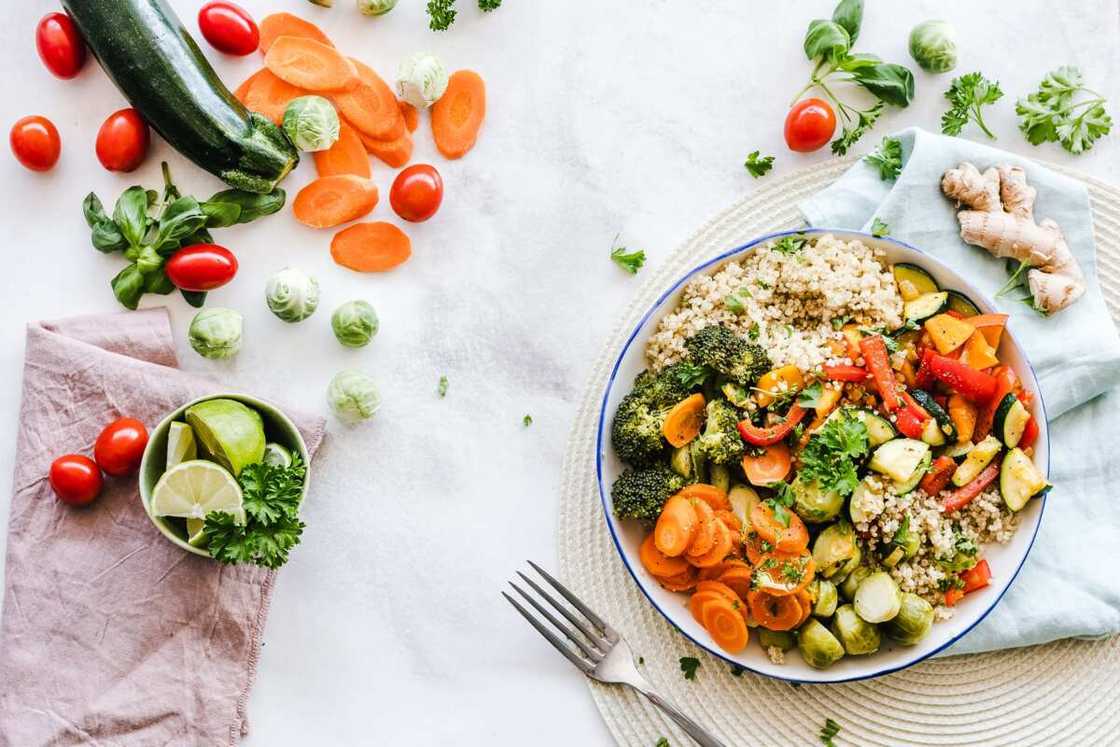
Source: Depositphotos
TABLE OF CONTENTS
Key takeaways
- Key health benefits of a balanced diet include lower cholesterol, clearer skin, boosted energy, and improved heart health.
- The Mediterranean diet is widely regarded as one of the most balanced eating patterns for improved long-term health.
- To shift to a balanced diet, start small by adding fruits, vegetables, whole grains, and lean proteins to build proper nutrition.
What is a balanced diet, and why is it important?
A balanced diet is a nutritional system that supplies the body with nutrients, vitamins, and minerals necessary to maintain the functionality of cells, tissues, individual organs, and the whole system, which is the human body.
Failure to maintain a balanced diet can lead to various health problems, from chronic fatigue and lack of energy to dysfunction of vital organs. This type of diet does not belong to food systems designed specifically for weight loss, but following it, you can be sure that the body will not overgrow with pounds of fat.
An adequately formulated balanced diet should consist of all major food groups in optimal proportions. Compliance with the recommended caloric intake will allow you to avoid excess weight. But the correction of calories is not the only requirement for a balanced diet.
It is essential to take care that the body receives the proteins, fats, carbohydrates, micro- and macro elements, vitamins, fibre, and other nutrients needed every day. Most nutritionists in the world agree that one of the most balanced diets is the traditional Mediterranean one. If you take it as a basis, it is easy to make a balanced menu for a week or even a month.
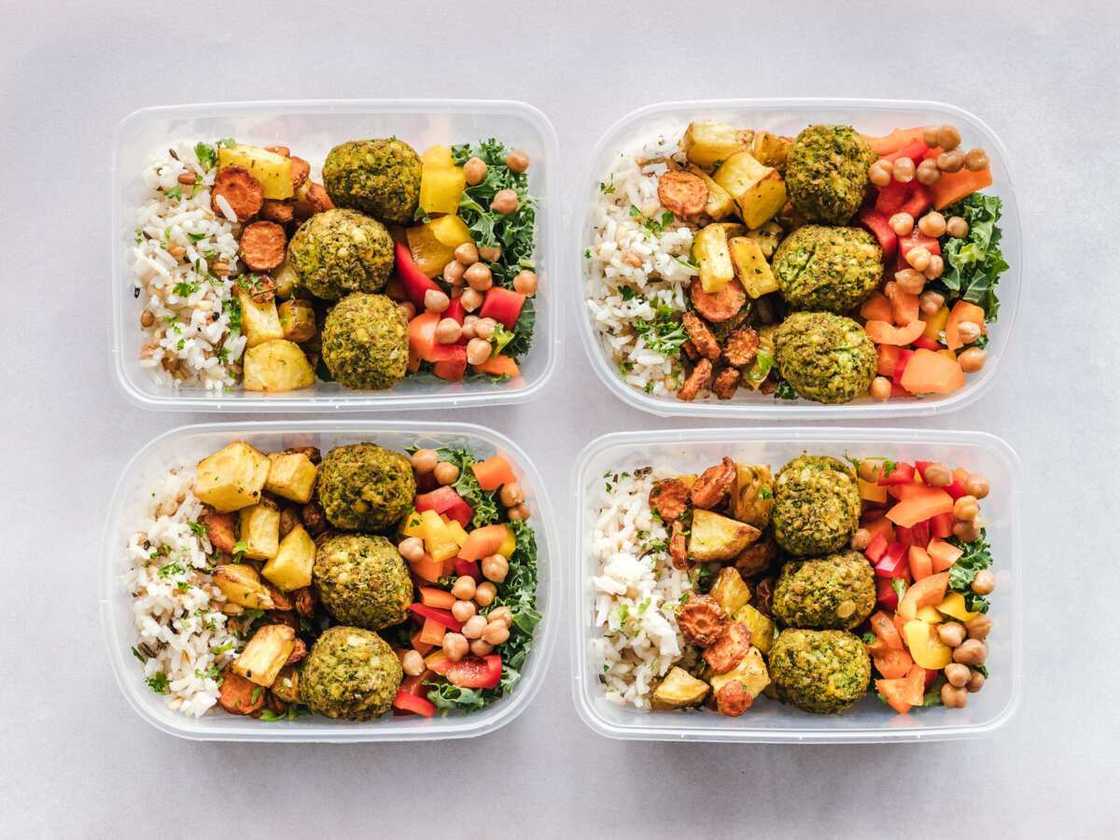
Source: Depositphotos
READ ALSO: Health benefits of guava leaves tea
Many people think that a balanced diet is too hard. However, healthy nutrition has its advantages, most of which can be felt in a short time after starting to consume healthy food. So, is it worth changing your diet?
Benefits of a balanced diet
Proper and balanced nutrition will help to avoid the occurrence of severe diseases like diabetes, hypertension, and many other sicknesses. Keep reading, and you will learn more about the benefits of proper nutrition.
- Lower cholesterol and blood pressure: High blood pressure and high cholesterol are among the leading causes of heart attack worldwide. If you consume high in animal fats and salt, it can not only promote weight gain, but also negatively affect your well-being, and even lead to premature ageing.
- Clear skin: If you suffer from acne, changing your diet to healthy foods will improve your skin condition and help it to be clear. Starting a healthy diet will help to improve the colour of your skin and the appearance of a natural, healthy shine that will allow you to look good even without makeup.
- Boosted energy levels: Currently, many people complain of low energy levels and chronic fatigue. One of the reasons for low energy is poor nutrition. If you often feel tired and sleepy, no matter how much time you sleep, try to start a balanced diet. It will help you increase your energy level and feel better.

Source: Depositphotos
- Improved heart health: Another benefit of a balanced diet is improved heart health. Studies show that such prevention of heart disease is quite useful, and it is recommended to include whole grains, vegetables, and fruits in the menu, as well as reduce the consumption of sugar, salt, and saturated fat.
- Longevity: If you want to live a long life, you should keep in mind that diet can have a strong influence on the duration and quality of life. A balanced diet increases your chances of improving your health and living a long life.
- Healthy weight: A healthy weight is one of the most common reasons why many people choose a balanced diet. A diet high in whole foods and low in processed and unhealthy foods will certainly help to maintain a healthy weight. A healthy weight, in turn, means that you will prevent health problems and reduce the risk of developing diabetes and heart disease.
- Slim body: Of course, the types of workouts and their regularity directly influence body shape. However, diet also plays a significant role. If you are consuming the right amount of healthy fats, proteins, and carbohydrates, it can play an even more important role than your workouts. If you want your body to be slim and fit, and your muscles toned, reconsider your diet.
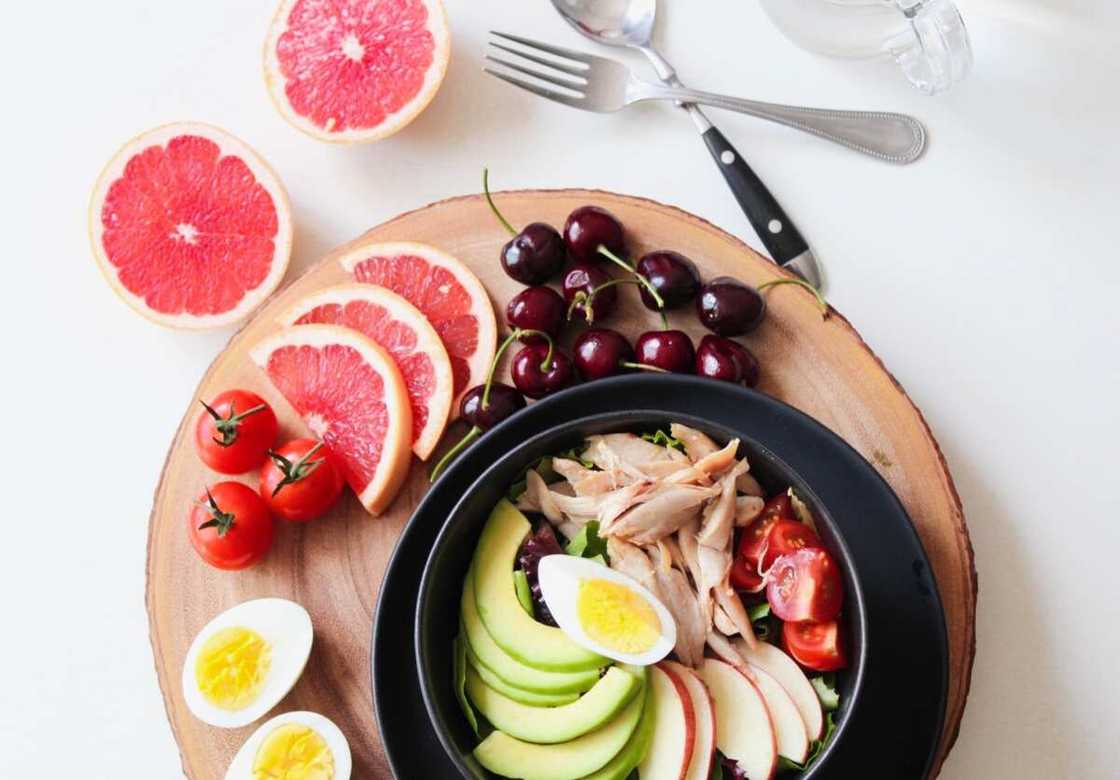
Source: Depositphotos
Scientists argue that a balanced diet, even in old age, contributes to improved well-being and increased longevity.
High cost of an unbalanced diet
Michelle Umeadi, a Nigerian dietitian and food expert, explained in an interview that not maintaining a balanced diet can lead to health issues, ranging from short-term to long-term risks, including hidden dangers. She warned:
(It can include) fatigue, weakened immunity, poor concentration, as well as some metabolic disorders. Over time, it can contribute to serious conditions such as obesity, type 2 diabetes, heart disease, hypertension, and certain deficiencies like anemia or osteoporosis. Mental health can also be affected, with links between poor nutrition and increased risk of depression and anxiety.
Common myths about a balanced diet
Dietitian Michelle shares some common misconceptions that make up a balanced diet:
- “A balanced diet means cutting out all fats and carbohydrates”, whereas healthy fats and complex carbs (such as brown rice and sweet potatoes) are essential.
- “Eating ‘clean’ or avoiding certain food groups entirely equals balance”, however, these often create nutrient gaps and deficiencies.
- “Expensive, trendy, or ‘oyibo' (foreign) foods are necessary.” Meanwhile, indigenous (local) whole foods, in the right portion, can be as effective.
Expert tips
The food expert advises to “start small and make gradual changes,” to help transition from a poor diet to a balanced one. She also recommends the following steps to take:
- Make a deliberate and conscious decision to effect change.
- Change your shopping list and baskets, fill them up with fruits, vegetables, whole grains, and lean proteins (like eggs and Greek yoghurt).
- Plan your meals and stay hydrated.
- Read nutrition labels to become more aware of what you are consuming, such as hidden sugars, salts, and unhealthy fats.
- Avoid following every diet you see online, but aim for sustainable habits by consulting a dietitian for personalized guidance and support if possible.
Balanced diet timetable
No diet can be called balanced if it does not have enough carbohydrates, fat, protein, fibre, vitamins, or minerals. Let us briefly recall why the body needs these substances.
- Carbohydrates: It is complicated to achieve a zero carbohydrate content in the diet, but if this happens, you can be sure that such nutrition will harm your body (even with strong obesity). Carbohydrates are the primary source of energy. Besides, they are necessary to maintain muscle shape. These substances serve as "food" for beneficial bacteria that live in the intestines.
- Fats: Our organisms need fats of plant and animal origin. They serve as an energy source and are indispensable for the proper functioning of the brain and nervous system. Fats are essential for maintaining healthy skin and other tissues, and they are also a component of cell membranes and a substance used to form steroid hormones. Fatty food is a source of essential fatty acids (from the omega group), and also indispensable for the proper absorption of fat-soluble vitamins such as A, D, E, and K.
- Proteins: The human body is an accumulation of various proteins (scientists counted from 30,000 to 50,000 types of protein compounds in our bodies). Protein food is a source of essential amino acids. It is necessary for the formation of DNA, enzymes, hormones, and special proteins in the body responsible for the transport of oxygen, blood, and muscle growth. Proteins are indispensable for healthy bones, hair, and nails. Every cell of the human body needs proteins. Protein abuse is also dangerous for humans, as is a nutrient deficiency.
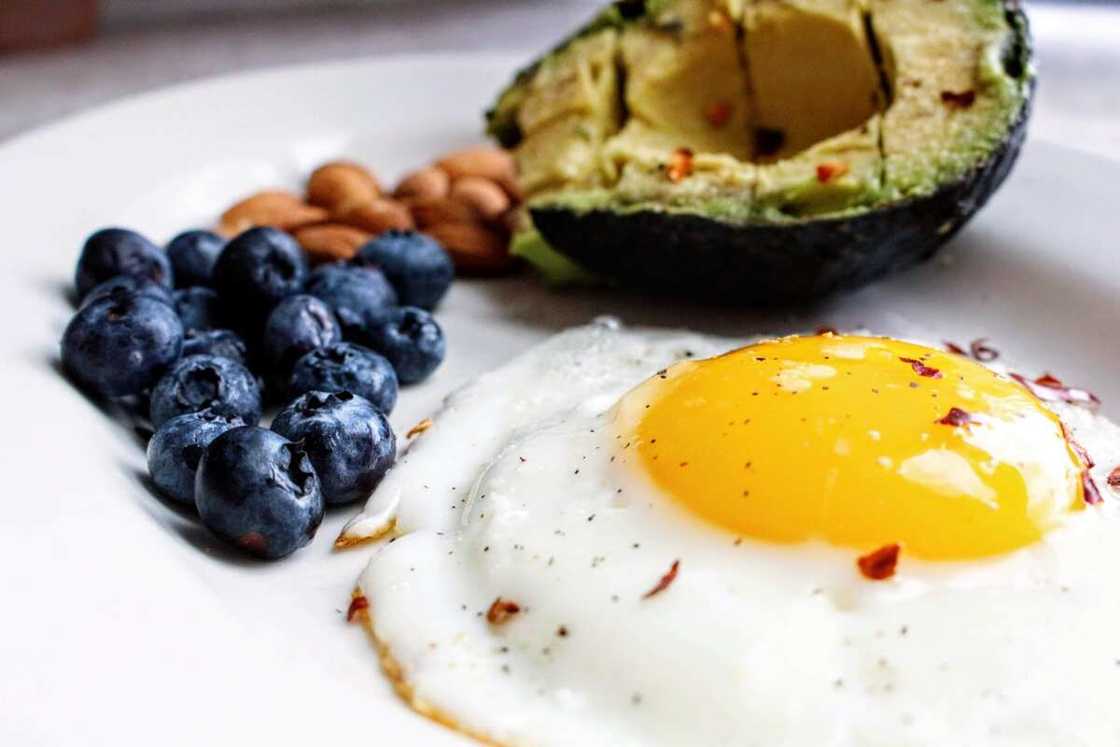
Source: Depositphotos
- Cellulose: Another name for this substance is dietary fibre. It is a special type of carbohydrate that is not absorbed by the body. The indispensability of such material is that it is responsible for the proper functioning of the intestines and supports healthy microflora, improves digestion, removes toxins from the body, and reduces the risk of cancer. Monitoring sufficient fluid intake is vital. Otherwise, there is a risk of constipation.
- Vitamins: The benefits of these substances can be talked about for a very long time. Each of them performs its function, which is manifested in the proper growth, development, and well-functioning of the entire system of the human body. As a rule, the lack of any of the vitamins triggers the domino principle, and ultimately, the whole body suffers.
- Minerals: Our bodies can not independently produce minerals, so it is crucial to replenish their reserves from food. Each of them, like vitamins, plays a significant role in the body. Maintaining the mineral balance is the key to the proper functioning of all organs and systems, which causes healthy bones, teeth, skin, and hair, the correct blood formula, and a healthy metabolism.

Source: Depositphotos
Today, many people neglect their health. Besides, the modern rhythm of life, snacking, and lack of time — all this leads to the wrong choice of products. A complete lack of information about proper nutrition has led to the fact that many people aged 35-40 years old already have a whole bunch of different diseases. Next, we will talk directly about the products that need to be included in the daily diet.
The composition of a balanced diet
One of the basic rules of proper nutrition is the variety of ingredients. You need to add vegetables, fruits, fish, meat, nuts, and bread. Only in this way, the body fully receive all the vitamins, minerals, and trace elements necessary for life.
- Dairy products: Different types of cheese, milk, sour cream, yoghurt, and other dairy products are indispensable in the diet as a source of calcium, protein, and vitamin D. People who have lactose intolerance should focus on fermented milk products, and cow's milk should be replaced with nut or soy milk, or take calcium as a dietary supplement
- Proteins: This group includes lean meat, poultry, fish, beans, nuts, seeds, eggs, and soy products. Protein food contains many other useful substances. For example, meat and poultry include a lot of iron, beans — fibre, eggs — an impressive complex of vitamins and minerals, and fish is rich in omega-3 fatty acids. You should choose a way of cooking that requires a minimum amount of fat. It would also be more appropriate to avoid semi-finished products and sausages, as they are usually oversaturated with fats and sodium.
- Fats and oils: They are not something dangerous for the body. On the contrary, fatty acids are indispensable for maintaining the functionality of most organs. Fat becomes dangerous only when there is their excess. But small portions of butter, olive, or other types of vegetable oils should be included in a balanced diet. The source of healthy fats is also nuts, seeds, sea fish, avocados, and olives.
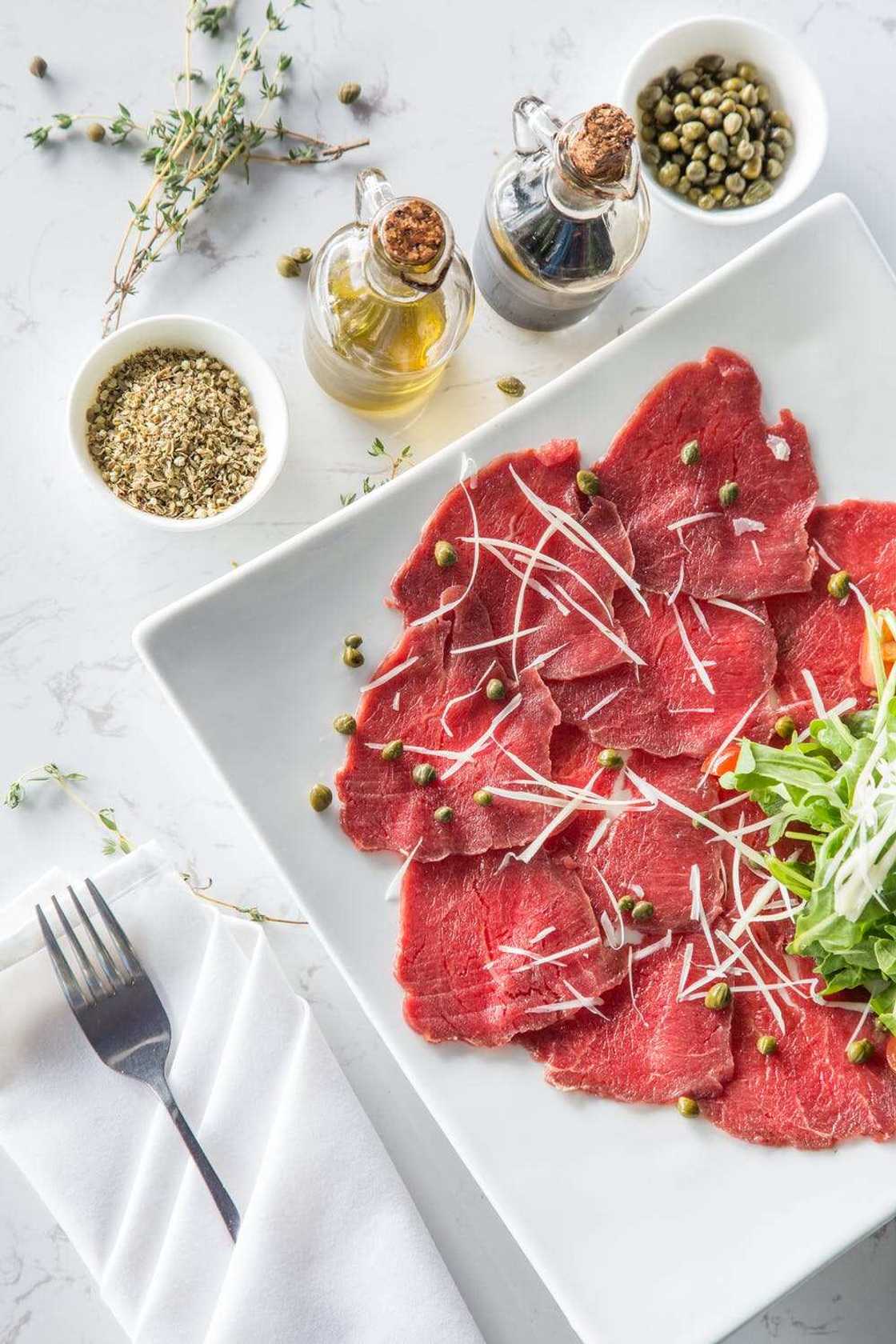
Source: Depositphotos
- Cereals: This food group is necessary as a source of so-called slow (correct) carbohydrates. Nutritionists advise consuming whole grains regularly, as they contain more fibre, as well as the maximum amount of vitamins of group B. Different types of cereals, namely whole-wheat bread and pasta from durum wheat, are useful for our organism. But you need to avoid dry breakfast cereals such as sweet pastries and crackers with sweeteners or other flavours.
- Fruits: They do not contain fat, and most of them are low-calorie but very nutritious. You can get a lot of fibre, as well as most vitamins and minerals. People who prefer fruit juices and dried fruits should remember that this form of fruit production contains many more calories, so it is advisable to control portions.
- Vegetables: As a rule, this is the lowest-calorie group of products. Nevertheless, they are an excellent source of vitamins, minerals, and fibre. Therefore, vegetables are considered indispensable for humans. A balanced diet involves eating different types of vegetables cooked with minimal use of fat. You should also be wary of starchy vegetables.
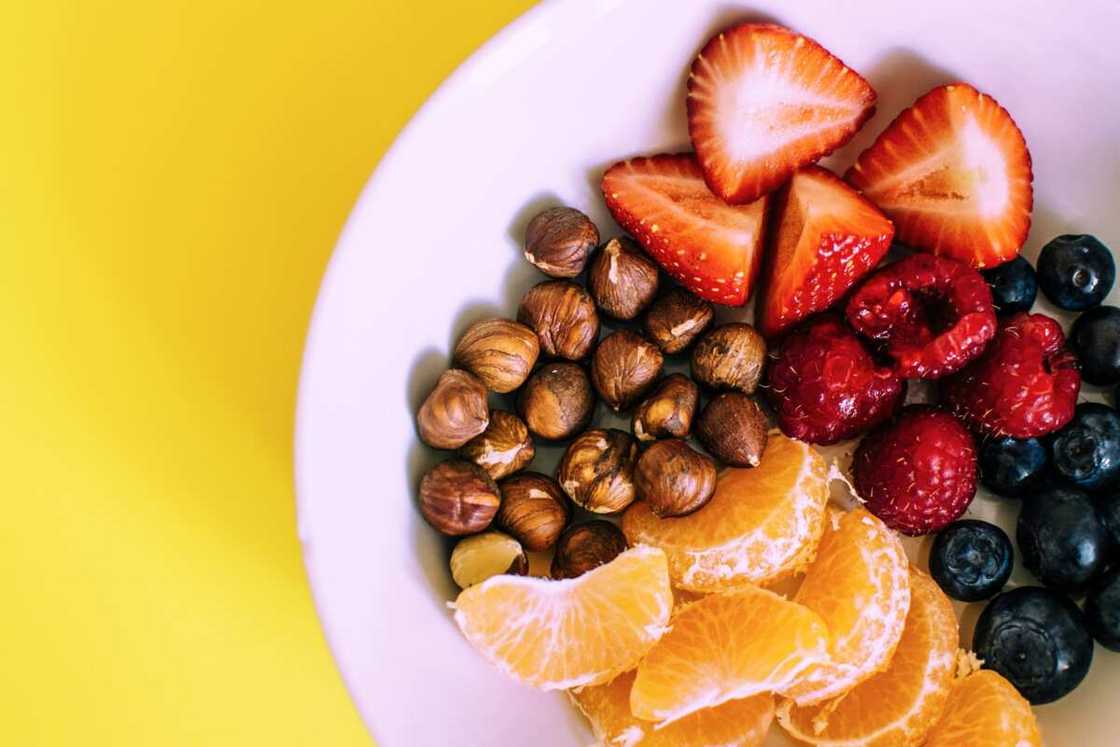
Source: Depositphotos
You should pay attention not only to what you eat but also how often. Proper nutrition must consist of 5-6 meals. Each meal should contain foods from different categories, and the size of portions should be moderate, consistent with the required calorie content.
There are no restrictions on consuming alcohol, but be careful with it. You should also control portions of sugar, salt, and limit the consumption of foods rich in saturated lipids and trans fats.
Nutritionists always focus on the need for a balanced diet. It is the key to maintaining good health and well-being. According to recent studies, even the mood of a person depends on a balanced diet. So, make sure your nutrition is correct. Do not be lazy about your health.
Disclaimer
This article is intended for general informational purposes only and does not address individual circumstances. It is not a substitute for professional advice or help and should not be relied on to make decisions of any kind. Any action you take upon the information presented in this article is strictly at your own risk and responsibility!
READ ALSO: Cod liver oil benefits for your health
Source: Legit.ng

Adrianna Simwa (Lifestyle writer) Adrianna Simwa is a content writer at Legit.ng where she has worked since mid-2022. She has written for many periodicals on a variety of subjects, including news, celebrities, and lifestyle, for more than three years. She has worked for The Hoth, The Standard Group and Triple P Media. Adrianna graduated from Nairobi University with a Bachelor of Fine Arts (BFA) in 2020. In 2023, Simwa finished the AFP course on Digital Investigation Techniques. You can reach her through her email: adriannasimwa@gmail.com

Mary Ugbodaga (Lifestyle Journalist) Mary Ugbodaga is a Legit.ng journalist with 7 years of experience in journalism and media communications. She graduated from Covenant University in 2018 with a Bachelor's degree in Mass Communication/Media Studies. Mary previously worked as a journalist at TheCable, CNBC AFRICA, Voice of Nigeria, KPMG Nigeria. Email: mary.ugbodaga@corp.legit.ng.



